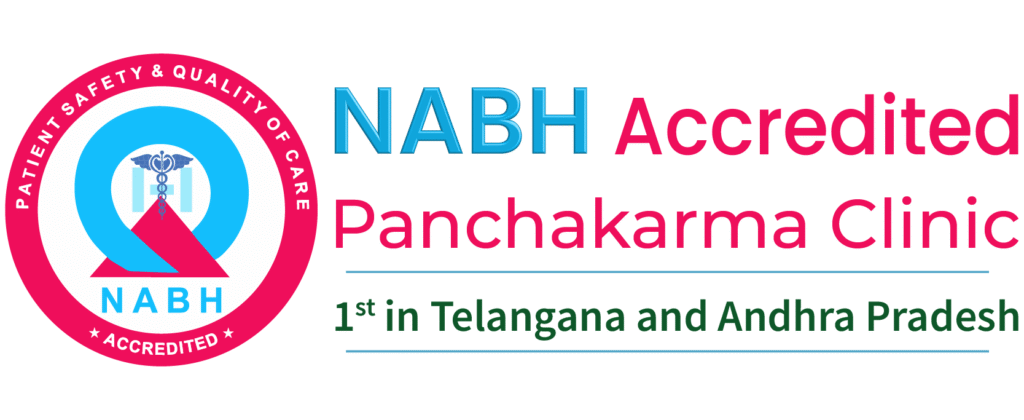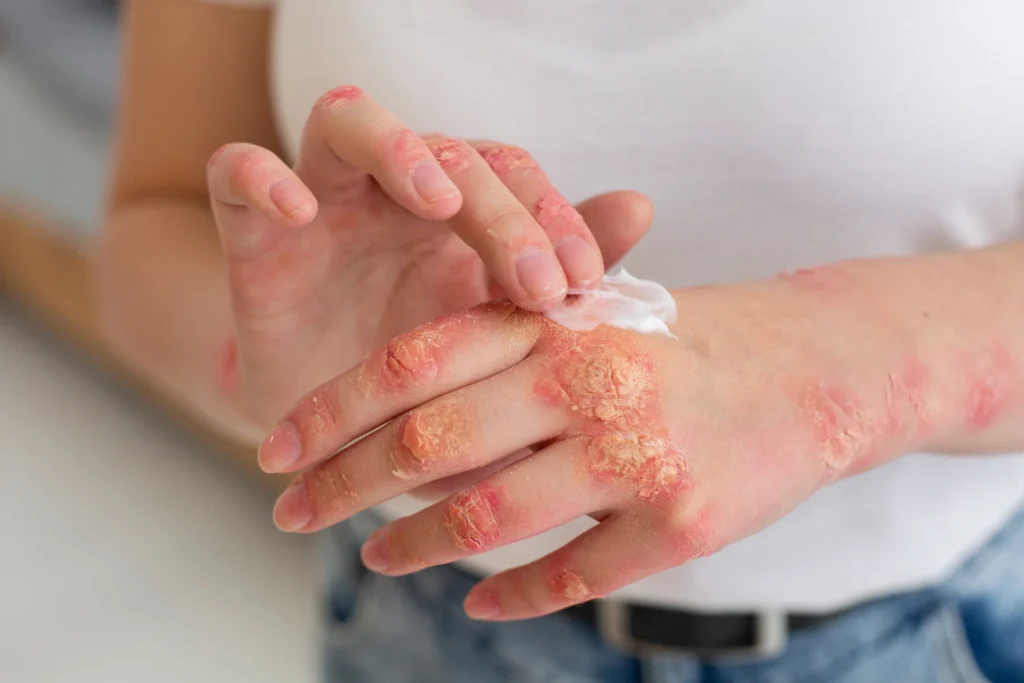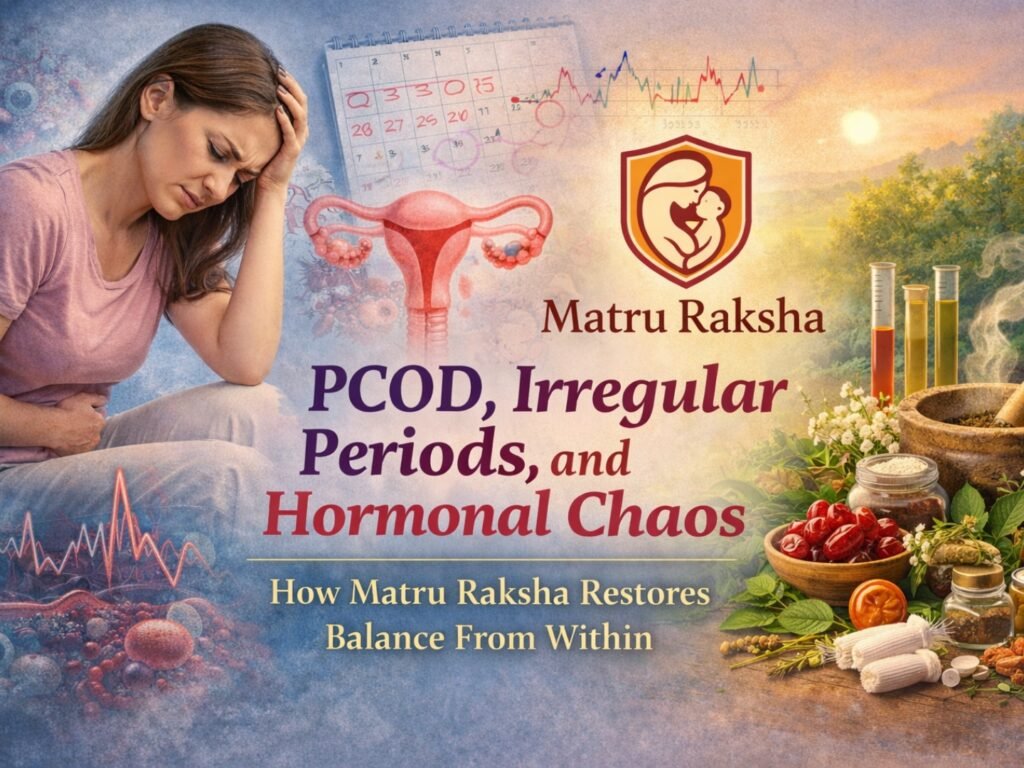Ayurveda offers a holistic approach to skin allergies by addressing internal imbalances. It emphasizes natural healing through personalized treatments based on an individual’s dosha. Common Ayurvedic remedies for soothing itchy and irritated skin include neem, aloe vera, and turmeric. Dietary changes, such as incorporating anti-inflammatory foods and eliminating allergens, also play an essential role. Lifestyle adjustments like stress management and proper sleep support skin health. More insights await on how Ayurveda can enhance skin well-being through specialist care at Ayurvedic clinics in Bangalore.
Understanding Skin Allergies: Causes and Symptoms
Although skin allergies can manifest in various forms, they generally arise from the body’s immune response to specific triggers. These triggers may include environmental factors such as pollen, pet dander, or chemicals in personal care products. Additionally, certain foods can provoke allergic reactions, resulting in symptoms ranging from mild irritation to severe inflammation. Individuals may experience redness, itching, swelling, or hives, which can greatly affect their quality of life. Understanding these underlying causes is essential for effective management and prevention. Innovative approaches to identifying allergens, such as advanced dermatological testing, can empower individuals to make informed choices. By recognizing and mitigating these triggers, one can pave the way for healthier skin and a more harmonious existence, enhancing overall well-being.
Ayurvedic Principles for Skin Health
Ayurveda, the ancient Indian system of medicine, emphasizes a holistic approach to skin health that integrates body, mind, and spirit. This system recognizes that skin conditions are often manifestations of internal imbalances, advocating for personalized treatments tailored to an individual’s unique constitution or dosha. For chronic issues like eczema or psoriasis, ayurvedic treatment for psoriasis in Bangalore has emerged as a natural and sustainable option. Emphasis is placed on maintaining skin integrity through nourishing practices that support overall well-being. Additionally, Ayurveda encourages the use of natural resources, such as dietary adjustments and daily routines, to foster a resilient skin barrier. This innovative framework invites individuals to embrace a thorough strategy for enhancing skin health and preventing future irritations.
Herbal Remedies for Soothing Itchy Skin
Understanding the underlying imbalances in the body can guide the selection of herbal remedies to alleviate itchy skin. Innovative solutions derived from Ayurveda, such as Kerala Ayurveda in Bangalore, utilize herbs like neem for anti-inflammatory benefits. Another potent option is calamine, which cools and soothes irritated skin. Aloe vera, with its moisturizing and healing effects, can also provide significant relief. Additionally, turmeric, rich in curcumin, acts as a natural antihistamine, reducing itching and redness. For ideal results, incorporating these herbs into topical treatments or soothing baths can enhance their efficacy. By tapping into the synergy of these natural ingredients, individuals can explore effective pathways for achieving relief from persistent skin irritations.
Dietary Adjustments for Skin Allergy Relief
When seeking relief from skin allergies, dietary adjustments can play an essential role in managing symptoms and promoting overall skin health. Those undergoing ayurvedic treatment in Bangalore are often advised to incorporate anti-inflammatory foods such as turmeric, ginger, and leafy greens. Additionally, omega-3 fatty acids found in walnuts and flaxseeds may enhance skin barrier function, minimizing allergic reactions. Eliminating common allergens, such as dairy and gluten, can also provide relief for sensitive individuals. Hydration is imperative; as a result, increasing water intake and consuming hydrating fruits can support skin vitality. Finally, incorporating probiotic-rich foods like yogurt and kimchi can strengthen gut health, which is intricately linked to skin condition. These dietary innovations can create a holistic approach to alleviating skin allergies, fostering a healthier complexion.
Lifestyle Changes to Support Skin Healing
Numerous lifestyle changes can greatly enhance skin healing for those suffering from allergies. Practices such as yoga and meditation, core to stress management in Ayurveda in Bangalore, can build resilience against flare-ups. Regular exercise promotes circulation, delivering essential nutrients to skin cells while expelling toxins. Additionally, maintaining a consistent sleep schedule fosters ideal skin repair and rejuvenation.
Environmental adjustments, such as using hypoallergenic bedding and air purifiers, can minimize exposure to allergens. Moreover, adopting a personalized skincare regimen that emphasizes natural ingredients aligns with Ayurvedic principles, promoting balance and harmony. Hydration is vital; drinking adequate water aids in skin elasticity and detoxification. Ultimately, these innovative lifestyle modifications create a supportive framework for healing, empowering individuals to reclaim their skin’s health and vibrancy.
Frequently Asked Questions
1. Can Ayurvedic Treatments Be Combined With Conventional Medicine for Allergies?
The question of whether Ayurvedic treatments can be combined with conventional medicine for allergies is gaining attention within the health community. Many practitioners advocate for an integrative approach, suggesting that the holistic principles of Ayurveda can complement conventional therapies. This combination may enhance patient outcomes, as it addresses both physical symptoms and underlying imbalances. However, careful consideration and professional guidance are essential to guarantee safety and efficacy in the treatment process.
2. How Long Does It Take to See Results From Ayurvedic Treatments?
The timeline for observing results from Ayurvedic treatments varies markedly among individuals. Factors such as the specific condition, treatment approach, and the individual’s overall health play essential roles. Generally, some may notice improvements within a few weeks, while others might require several months for substantial changes. Commitment to lifestyle modifications and dietary adjustments, integral to Ayurvedic philosophy, can also influence the speed of results, emphasizing a holistic approach to wellness and healing.
3. Are There Any Side Effects of Ayurvedic Herbal Remedies
The inquiry into the side effects of Ayurvedic herbal remedies reveals a complex landscape. While many individuals experience benefits, some may encounter mild side effects such as gastrointestinal discomfort or allergic reactions. These effects can vary based on individual health conditions and the specific herbs used. It is essential for users to consult healthcare professionals before starting any regimen, ensuring a tailored approach that minimizes risks and maximizes the potential for positive outcomes.
4. Can Stress Worsen Skin Allergies, and How Can Ayurveda Help?
Research indicates that stress can exacerbate skin allergies, as it may trigger inflammatory responses in the body. The connection between mental wellness and skin health is increasingly acknowledged. Ayurveda offers innovative approaches, emphasizing holistic balance through herbal remedies, dietary adjustments, and lifestyle changes. By integrating techniques such as meditation and yoga, Ayurveda seeks to alleviate stress, thereby potentially reducing the severity of skin allergies and promoting overall skin health.
5. What Specific Ayurvedic Practices Can I Incorporate Into My Daily Routine?
Incorporating specific Ayurvedic practices into a daily routine can enhance overall well-being. Individuals may consider starting with daily oil massages using warm sesame or coconut oil to nourish the skin. Additionally, practicing yoga and mindfulness meditation can promote mental clarity and reduce stress. Adopting a balanced diet rich in fresh fruits, vegetables, and whole grains, while avoiding processed foods, further supports holistic health. These innovative approaches align with modern wellness trends, fostering a proactive lifestyle.












